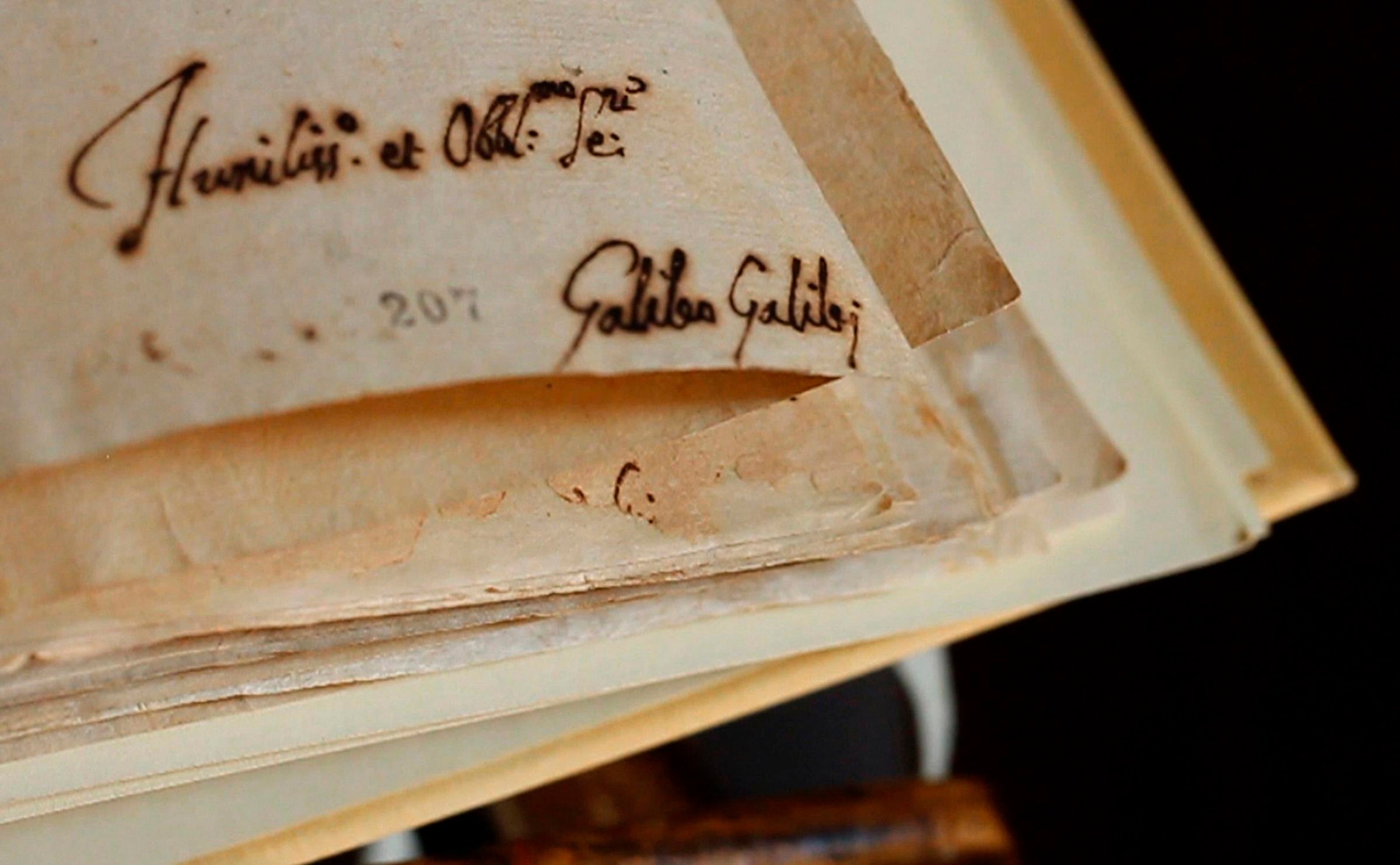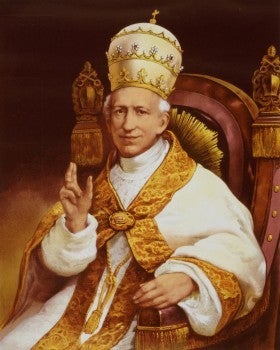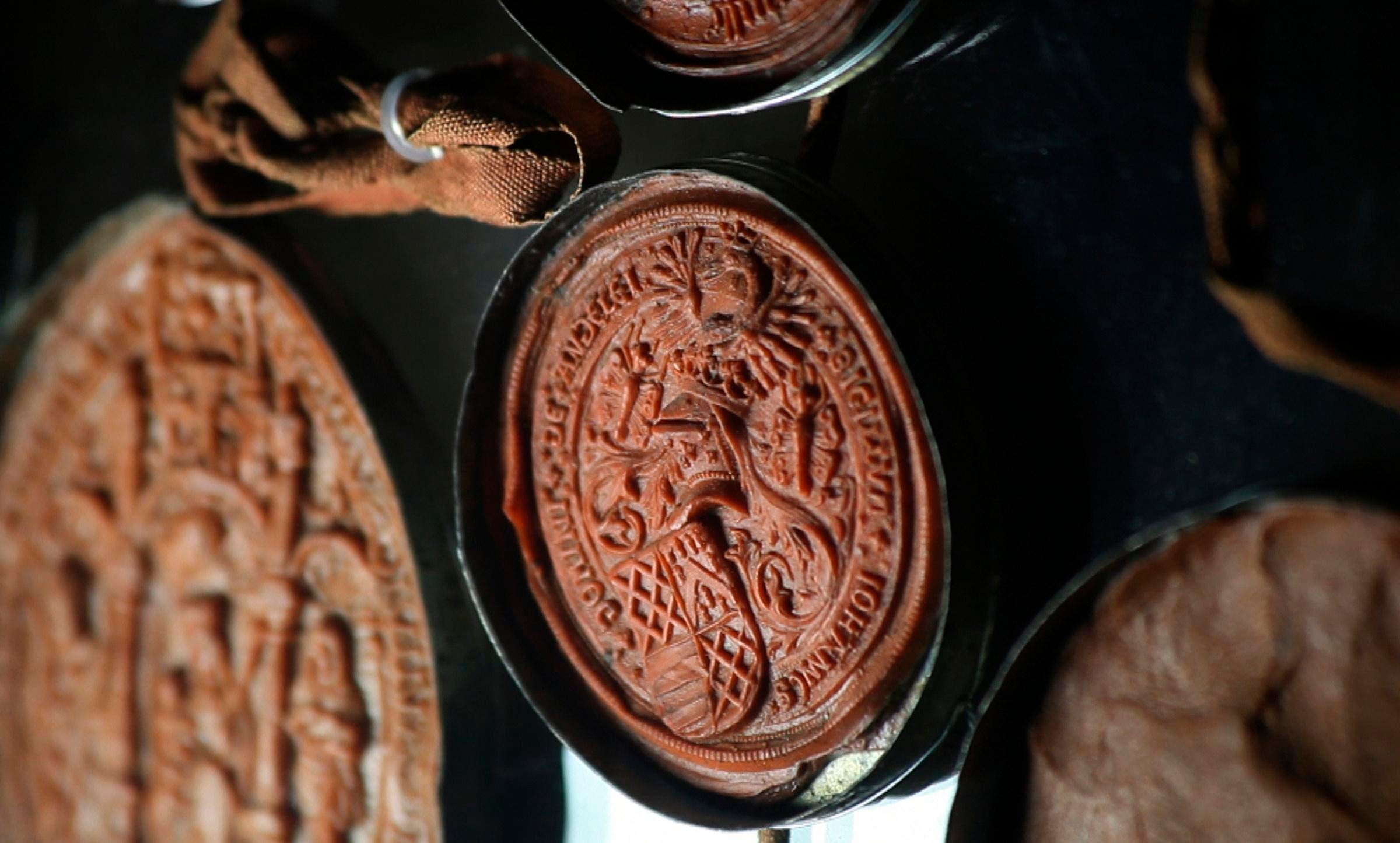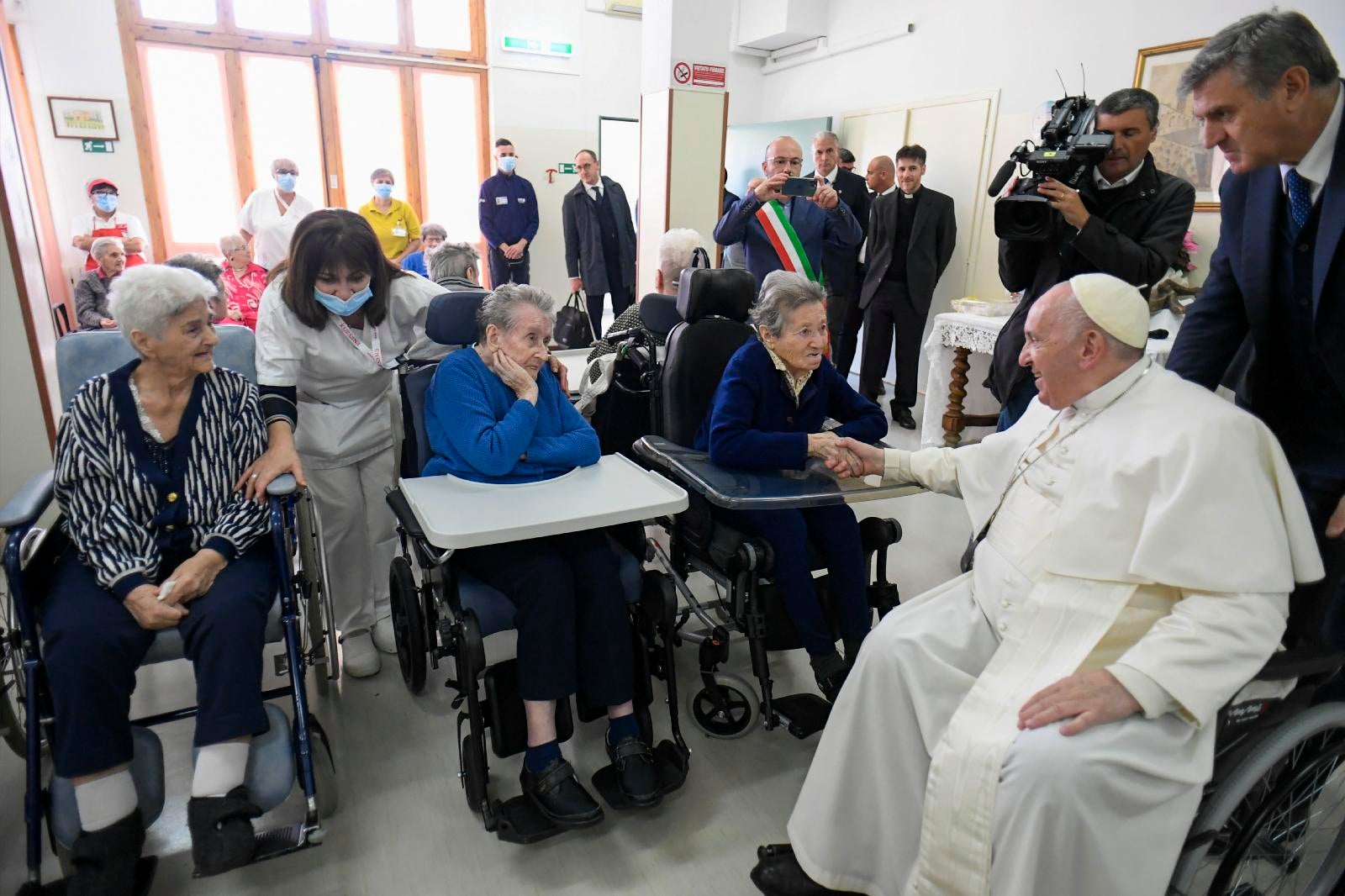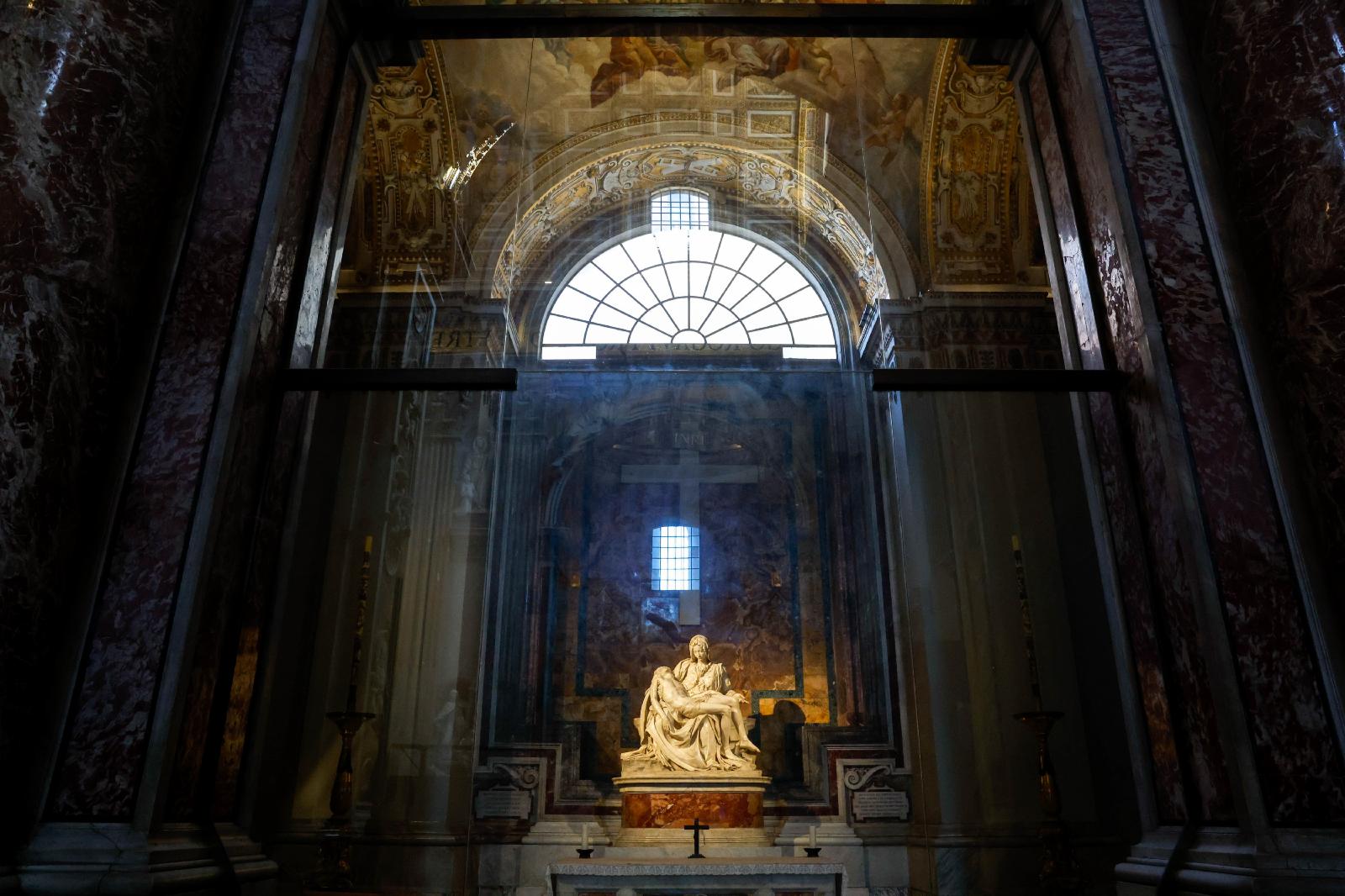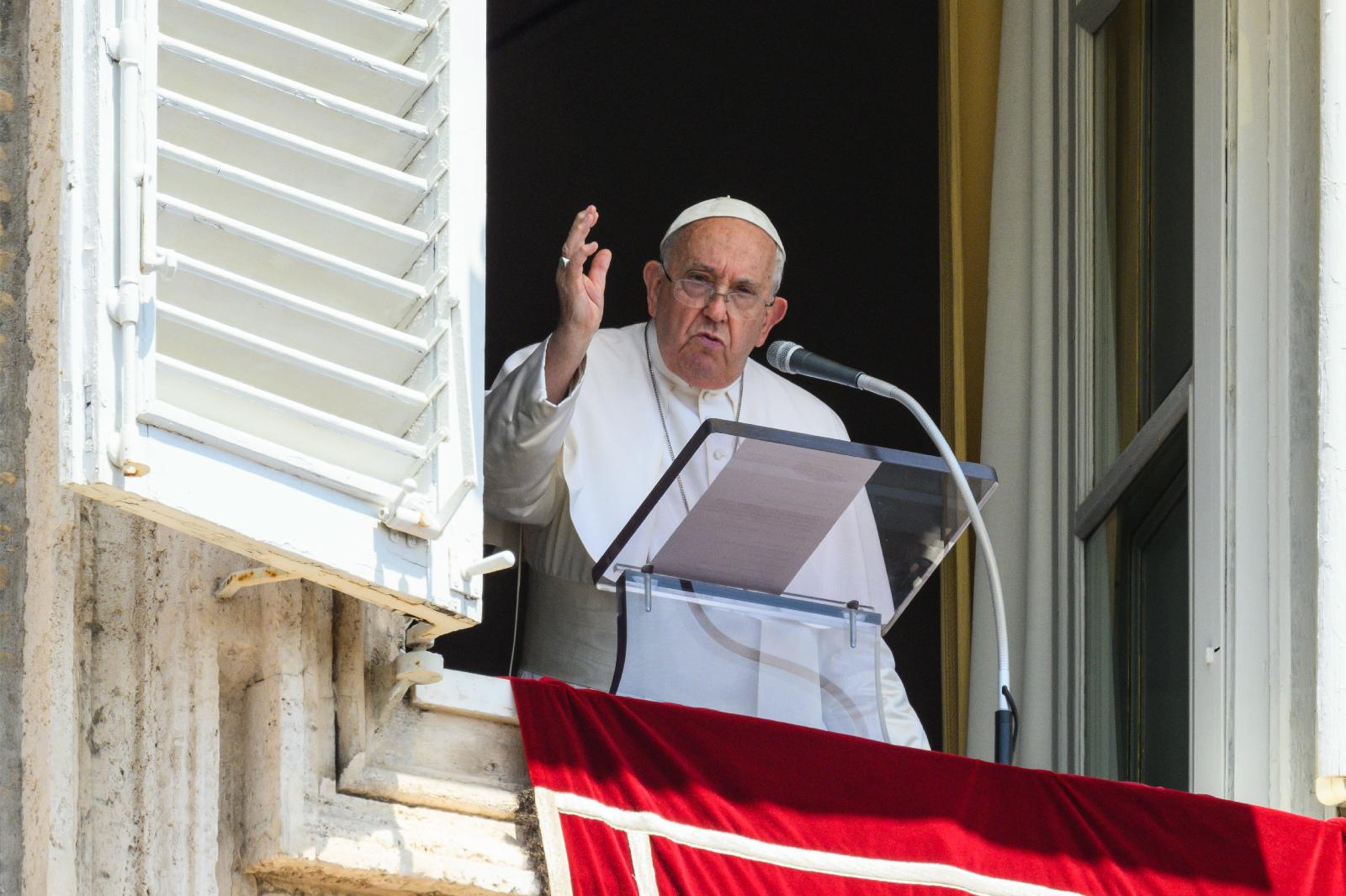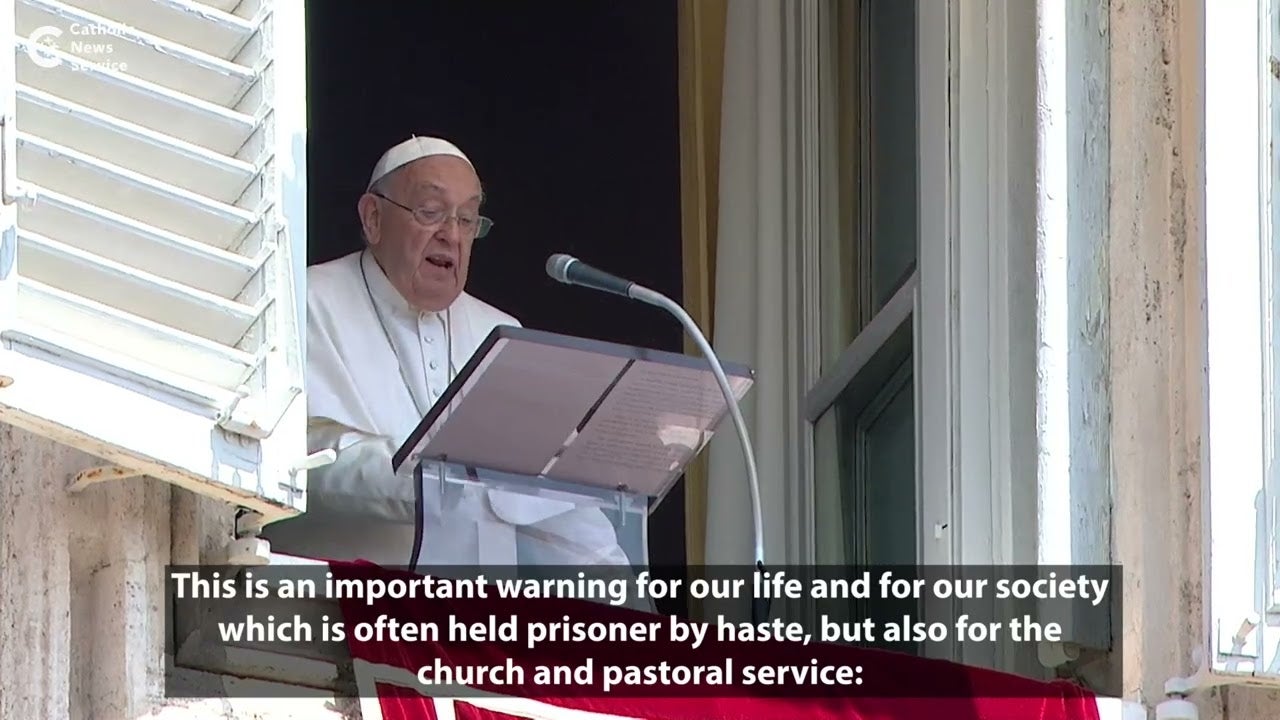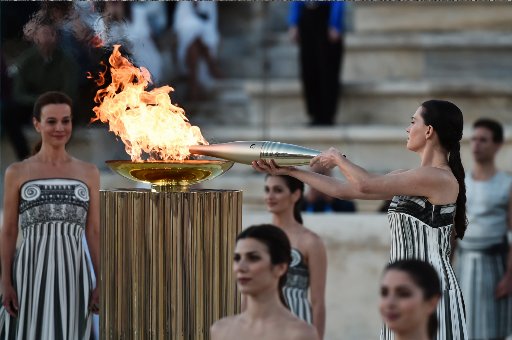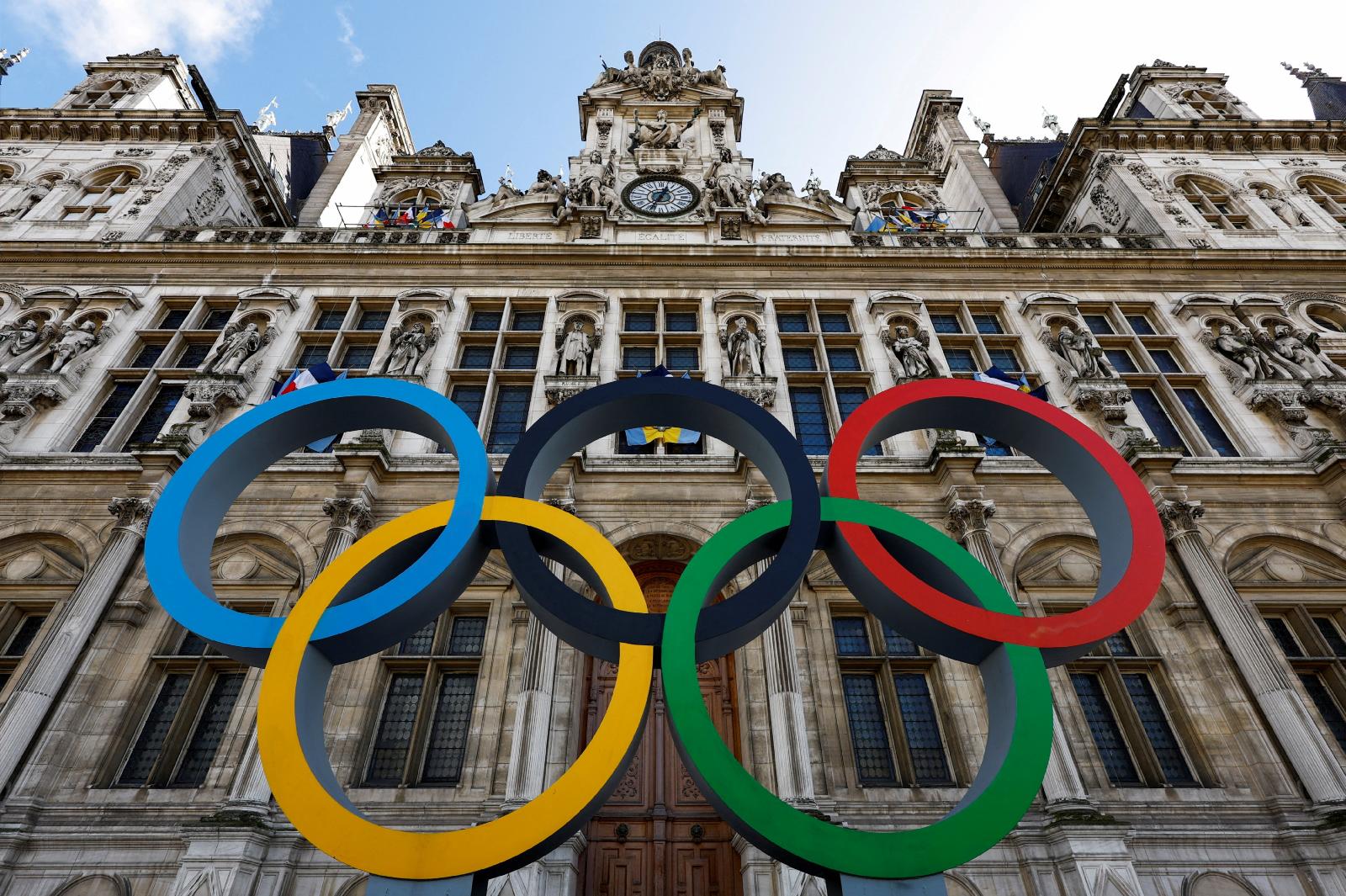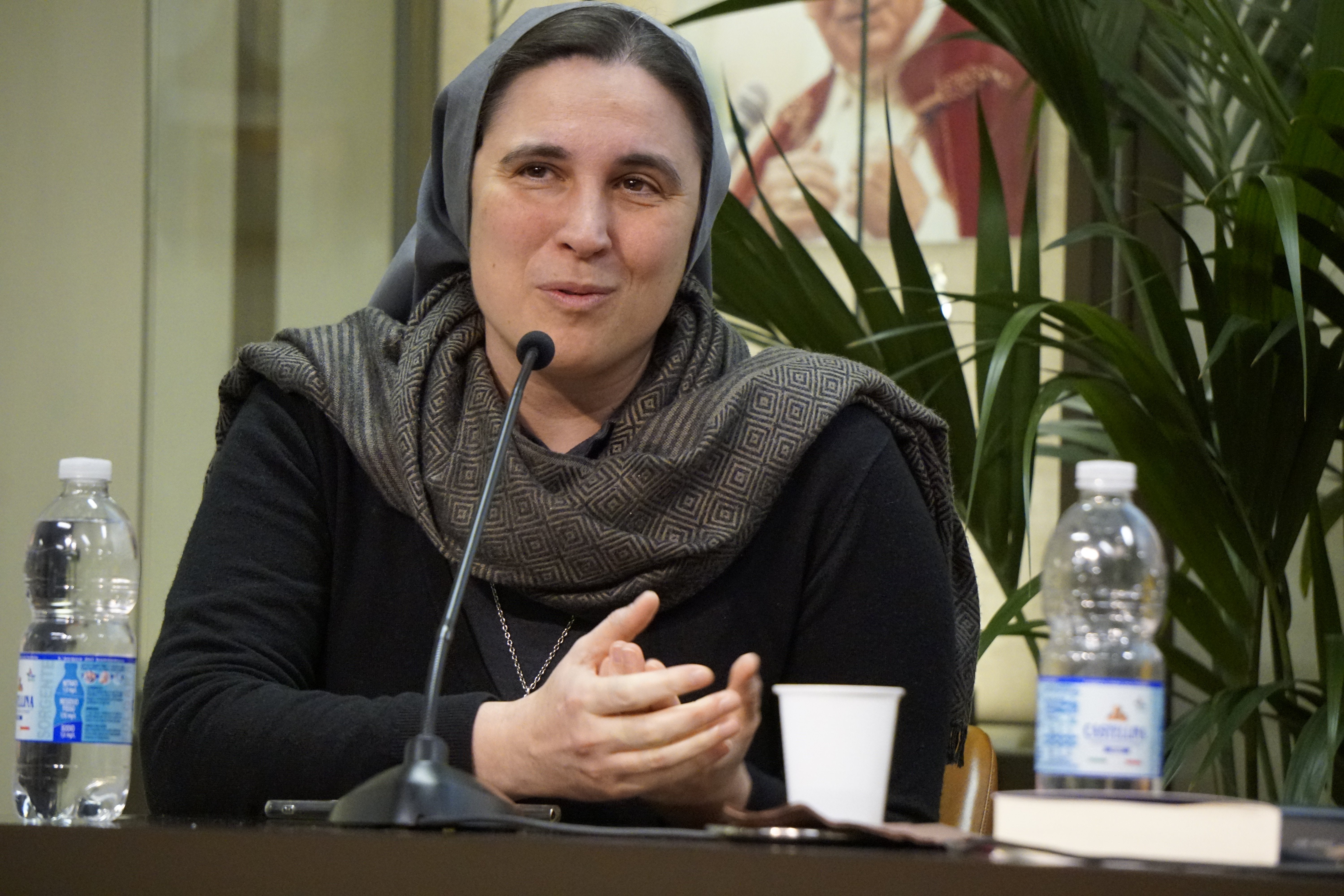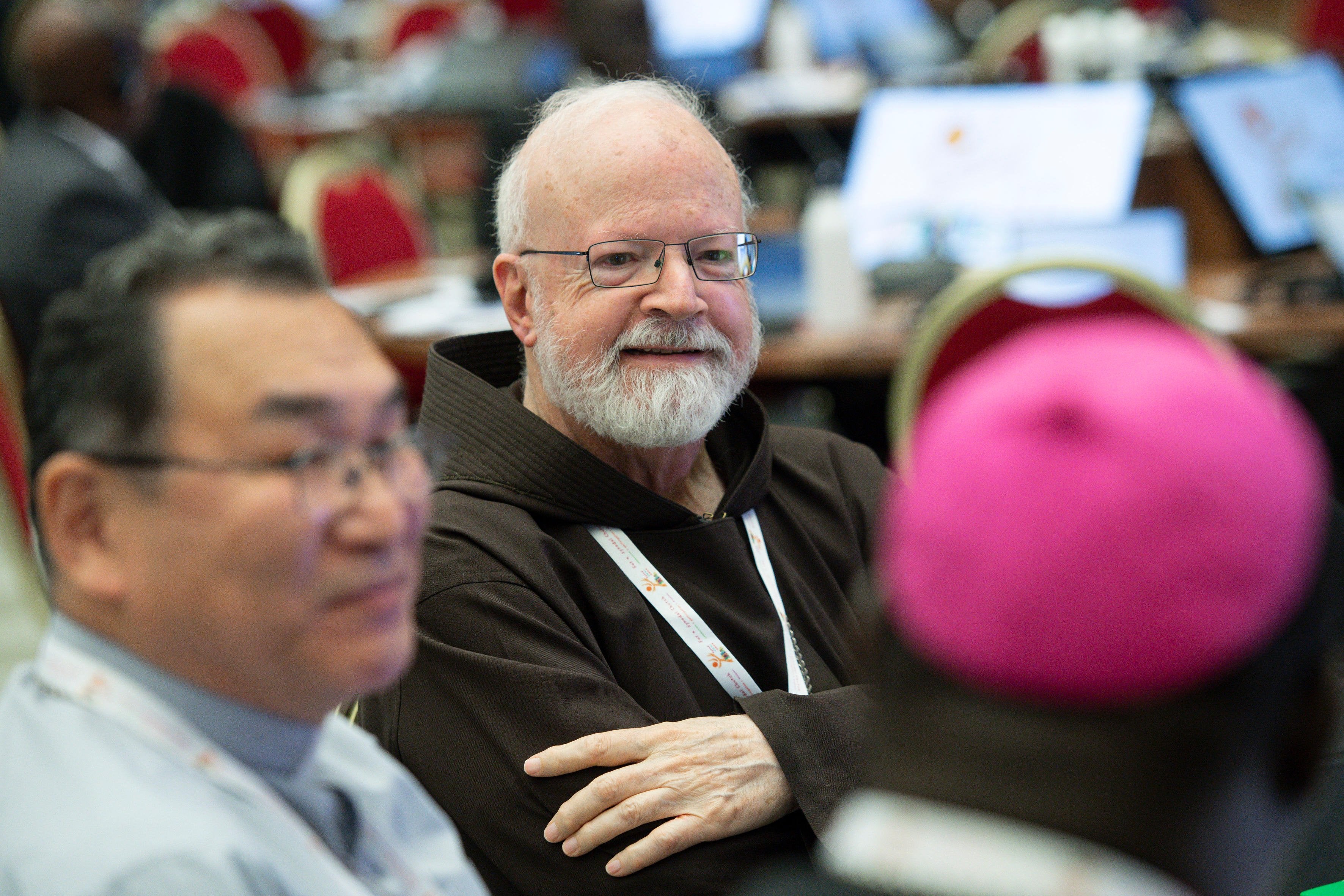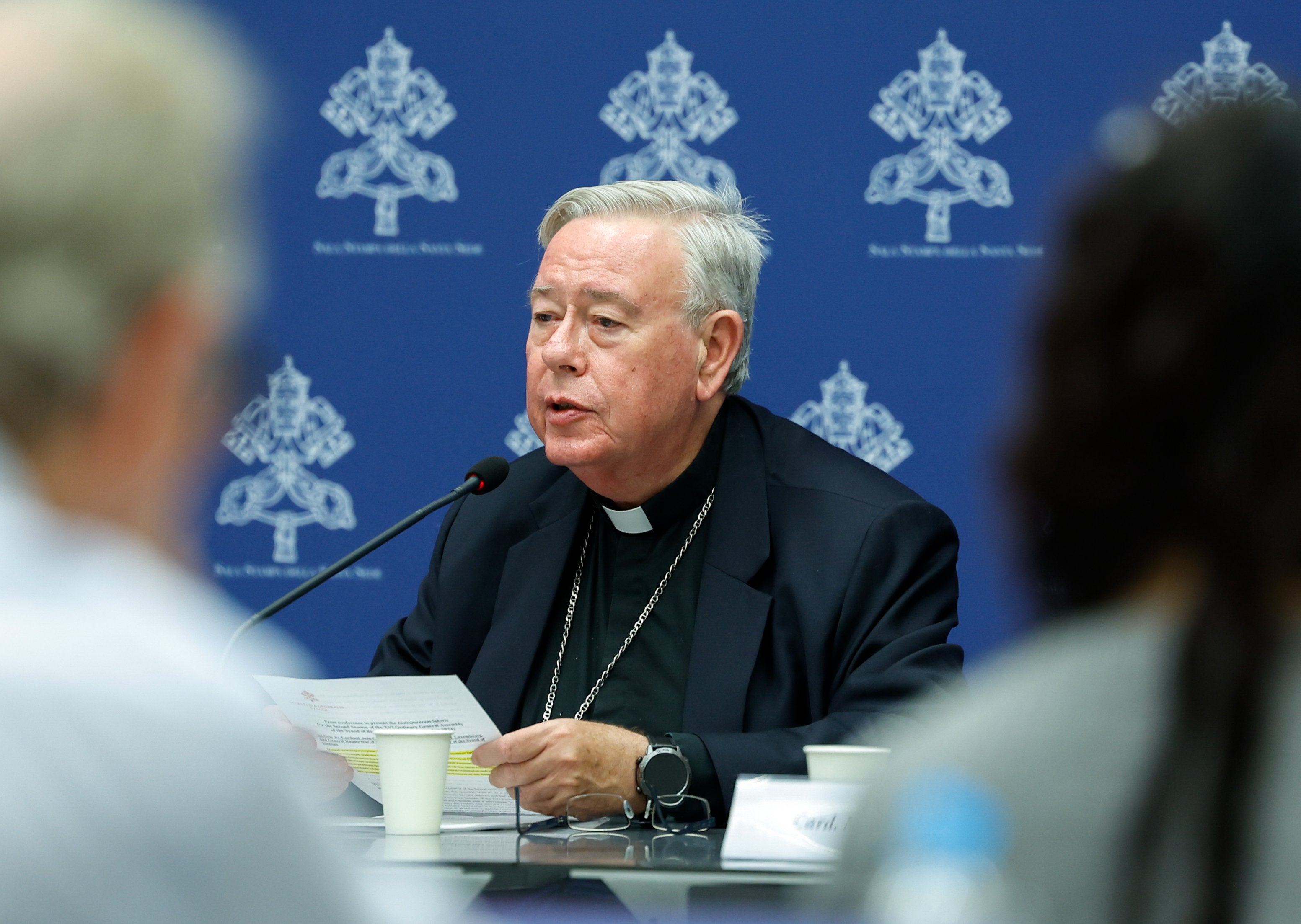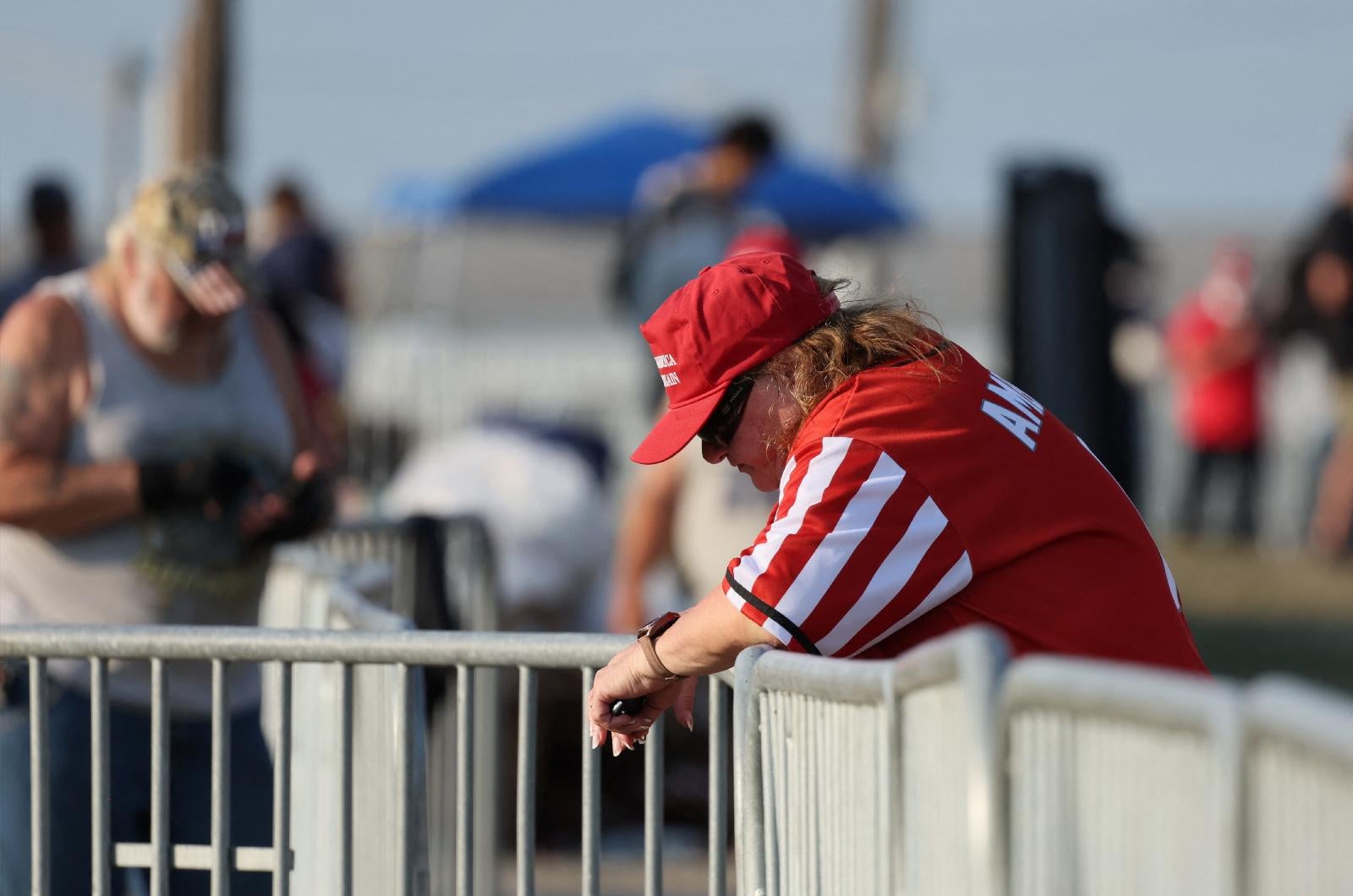Browsing News Entries
Lessons learned: Studying past prepares people for the present, archivist says
Posted on 07/26/2024 07:30 AM (USCCB News Releases)
VATICAN CITY (CNS) -- Regardless of what people might imagine, archivists are the happiest people on earth, said the prefect of the Vatican Apostolic Archives, Bishop Sergio Pagano.
"Even if people say we work amongst cobwebs and dust, that we are library mice," it does not matter, he said, because "we know how things went in the past so well that when we see how things are going now, we are not disappointed; we smile because we can see that it's the same thing over and over."
Admittedly, that might lead to some pessimism to think some things never change, but on the whole, there is a more comforting realization that "there is nothing new under the sun," the 75-year-old bishop, born in Genoa, said in a book-length interview published in Italian in early 2024.
Vatican journalist Massimo Franco compiled 32 interviews with the bishop from 2022 to 2023 into the book, titled, "Secretum" ("Reserved"). It refers to the archives' centuries-old Latin title: "Archivum Secretum," in which the term, "secret," refers to something that is "private, separate, reserved." Pope Francis changed the name in 2019 to "Archivum Apostolicum," recognizing that "secret" had too many negative connotations and that "apostolic" better reflected the collections which belonged to the popes.
The book seeks to glean the archives' highlights and discoveries during Bishop Pagano's 46 years at the Vatican Apostolic Archives, which he led as prefect for the past 27 years.
"I have always been curious," he said, explaining how, when he was first hired as a "scrittore" or writer-researcher right after his ordination as a Barnabite priest in 1978, he would comb through the collections' labyrinth of 53 miles of shelf-space.
He would even go into the archives on Sunday mornings when it was even quieter to open up the folders and see what was inside, looking for something "interesting, and here, everything is interesting," he said.
Founded by Pope Paul V in 1611, there are 450 different archives in the Vatican Apostolic Archives. "Today we know, in general, everything that there is, but every now and then we'll make a discovery," he said.
The 420-page book hits a number of hot topics, such as the recently opened archives of Pope Pius XII and the 17th-century inquisition, trial and condemnation of Galileo Galilei for suspected heresy.
Two chapters are dedicated to the United States with details and insights into how the Vatican and popes looked at the "new world" across the Atlantic and its burgeoning and widely diverse Catholic population as well as racism and discrimination against Black Americans, and its growing economic and political strength.
Pope Pius IX was the first pope to send an emissary to the United States in 1853 "in the hopes of developing diplomatic relations with 'the New World,'" Bishop Pagano said. However, the Papal States' overthrow of a short-lived constitutional republic in Italy in 1849 did not sit well with some U.S. citizens and the new nuncio and his secretary were forced to leave after "months of protests, threats of lynching, misunderstandings" in 1854.
The Vatican, especially when it was a larger temporal power resisting independence movements within its conglomeration of territories, "was seen as an evil power, secret, insidious, obscurantist which the Americans detested," the bishop said. "This prejudice lasted a long time to the point of hindering the establishment of full diplomatic relations until 1984."
Those early prejudices also extended to U.S. Catholics who were sometimes viewed by their fellow citizens with suspicion as "papists" who "answered to a foreign power, the power of Rome, perceived as a medieval monster with a strange figure at its head," he said.
Meanwhile, the bishop said, the Vatican also looked upon the United States with suspicion -- with its rigid separation of church and state, and founded by Masons "under the umbrella" of the ideals of the French Revolution.
When the Papal States were dissolved with Italy's unification in 1870, the United States recalled its representative, seeing no need for one in a state that no longer existed, he said.
Things slowly started to change with Pope Leo XIII who saw the need to have more oversight over "a Catholicism that was evolving differently from that in Europe," Bishop Pagano said. It was "a bit more anarchic compared to European standards" and the Vatican was apprehensive about Catholic leaders seeking to "collaborate with the lay Protestant world."
"Pope Leo XIII began to fear either this excessive closeness to Protestants or too much autonomy of the bishops or parts of the American clergy could influence and distance Catholics in that huge nation from Rome," he said. Also there was a huge influx of Polish, German, Italian and Spanish immigrants, who were quickly diversifying a Catholic population that had predominantly been from Ireland and France.
An apostolic delegate or nuncio was needed, he said, to keep a direct line of communication between the local church and Rome, provide concrete information about potential new bishops and help make sure bishops and missions were present in these vast territories, he said.
Eventually, an apostolic delegate was appointed in 1893 and full formal diplomatic relations would finally be established in 1984 after decades of increased cooperation, expanding mutual interests and having the common enemies of fascism and communism, he said.
Among the diplomats' files is a report to the Vatican by Cardinal Pietro Biondi, apostolic delegate to the U.S. from 1922 to 1933. He was concerned about racism and discrimination in the church against Black Catholics and the scarce number of African-American priests.
"Feeling abandoned" by their fellow Catholics, there was a "constant hemorrhaging toward Protestant sects," he said. The archives show the Vatican was calling on priests, almost all of whom were white, to increase their pastoral care and attention toward people of color, noting religious orders, especially women's, had more racial diversity.
The archives also show the tremendous generosity of U.S. Catholics in fundraising and contributing to papal charities and the Vatican's work, Bishop Pagano said.
For example, he said, when Pope Benedict XV died in 1922, his private coffers were empty. Instead of saving to pay for the conclave to elect his successor, he spent the money on supporting formation programs and charities in Italy, which had been crippled economically by World War I.
The Vatican Secretary of State sent a coded telegram to the apostolic delegate in Washington requesting immediate financial help and to ask the U.S. cardinals to pay all their own expenses in Rome, he said. The delegate sent $210,400 "and 9 cents" (about $3,610,000 today) from the Peter's Pence collections from 1921 and early 1922 to pay for holding the conclave.
Today, the Treasures of History Foundation, made up of U.S. bishops and laypeople, was established in 2020 to raise funds for the work of the apostolic archives, which is immense as new documents are regularly added to its collections, he said.
The archives give a concrete snapshot of the lives, thoughts, fears, troubles and accomplishments of so many different people in the church in different times and places, Bishop Pagano said.
There are "sins" recorded in its collections, but "there is much more light," he said.
He said, some might want to think "the church is made up of pedophiles, people who are crazy, delusional, but that's not true at all. The noise of the one tree that falls overshadows the good growth of the silent forest."
Pope Francis Names New Auxiliary Bishop of Saint Paul and Minneapolis
Posted on 07/25/2024 07:30 AM (USCCB News Releases)
WASHINGTON - Pope Francis has appointed Reverend Kevin Thomas Kenney, as auxiliary bishop of Saint Paul and Minneapolis. Bishop-elect Kenney is a priest of the Archdiocese of Saint Paul and Minneapolis, and currently serves as pastor of Saint Olaf Catholic Church, administrator of Saints Cyril and Methodius Catholic Church, and chaplain at DeLaSalle High School, in Minneapolis, Minnesota. The appointment was publicized in Washington, D.C. on July 25, 2024, by Cardinal Christophe Pierre, apostolic nuncio to the United States.
The following biographical information for Bishop-elect Kenney was drawn from preliminary materials provided to the U.S. Conference of Catholic Bishops:
Father Kenney was born on December 29, 1959, in Minneapolis, Minnesota. He graduated from the University of Saint Thomas in Saint Paul (1978-1983), with a bachelor’s degree in business administration and Spanish and a master of divinity from Catholic Theological Union in Chicago (1992). Bishop-elect Kenney entered the Archdiocesan Seminary of Saint Paul in 1992. He was ordained to the priesthood on May 28, 1994.
Bishop-elect Kenney’s assignments after ordination include: assistant priest at Saint Olaf Catholic Church (1994-1998); pastor at Our Lady of Peace Catholic Church in Minneapolis (1998-2004); pastor at Our Lady of Guadalupe Diocesan Shrine in Saint Paul (2004-2015); regional vicar of Latino ministry (2011-2018); representative of the comprehensive assignment board (2014-2020); pastor of Saint Michael’s Catholic Church in Kenyon (2015-2019); and pastor of Divine Mercy Catholic Church in Faribault (2015-2019). Since 2019, Bishop-elect Kenney has served as administrator of Saints Cyril and Methodius Catholic Church in Minneapolis, chaplain at DeLaSalle High School in Minneapolis, and pastor of Saint Olaf Catholic Church in Minneapolis. Bishop-elect Kenney speaks English and Spanish.
The Archdiocese of Saint Paul and Minneapolis is comprised of 6,187 square miles in the state of Minnesota and has a total population of 3,532,316 of which 720,000, are Catholic.
###
Don't antagonize the elderly, pope says in grandparents' day message
Posted on 07/25/2024 07:30 AM (USCCB News Releases)
VATICAN CITY (CNS) -- The elderly must not be accused of saddling younger generations with their medical expenses and pensions -- a notion which foments intergenerational conflict and drives older people into isolation, Pope Francis said.
"The accusation that the elderly 'rob the young of their future' is nowadays present everywhere," the pope wrote in his message for World Day of Grandparents and the Elderly, a church celebration that will take place July 28.
Even in the most advanced and modern societies "there is now a widespread conviction that the elderly are burdening the young with the high cost of the social services that they require, and in this way are diverting resources from the development of the community and thus from the young," he wrote in the message released May 14.
Such a mentality "assumes that the survival of the elderly puts that of the young at risk, that to favor the young it is necessary to neglect or even suppress the elderly," he wrote.
Yet the pope stressed that "intergenerational conflict is a fallacy and the poisoned fruit of conflict."
"To set the young against the old is an unacceptable form of manipulation," he wrote.
The pope's message expanded on the theme chosen for this year's world day which was taken from the Book of Psalms: "Do not cast me off in my old age."
The 2024 celebration marks the fourth edition of World Day for Grandparents and the elderly. In 2021, Pope Francis instituted the world day to be observed each year on the fourth Sunday of July, close to the liturgical memorial of Sts. Joachim and Anne, the grandparents of Jesus.
In his message for this year's celebration, the pope emphasized that "God never abandons his children," even as they grow weak and "can risk appearing useless." But today, a "conspiracy surrounding the life of the elderly" often results in their abandonment by those close to them.
"The loneliness and abandonment of the elderly is not by chance or inevitable, but the fruit of decisions -- political, economic, social and personal decisions -- that fail to acknowledge the infinite dignity of each person," he wrote.
The pope explained that such a phenomenon occurs "once we lose sight of the value of each individual and people are then judged in terms of their cost, which is in some cases considered too high to pay."
Unfortunately, he said, the elderly themselves can succumb to this cost-benefit mindset; "they are made to consider themselves a burden and to feel that they should be the first to step aside."
Pope Francis identified the decline of communal structures in society and the widespread celebration of individualism as other factors behind the isolation of the elderly, "yet once we grow old and our powers begin to decline, the illusion of individualism, that we need no one and can live without social bonds, is revealed for what it is."
The pope then recounted the Bible story in which the elderly Naomi encourages her two daughters-in-law to return to their hometowns after the death of her husband and children since she sees herself as a burden to them. "Her words reflect the rigid social and religious conventions of her day, which apparently seal her own fate," the pope wrote.
While Orpah returns home, grateful for the encouragement, Ruth "is not afraid to challenge customs and inbred patterns of thought" and "courageously remains at her side," he wrote.
The pope encouraged all people to "express our gratitude to all those people who, often at great sacrifice, follow in practice the example of Ruth, as they care for an older person or simply demonstrate daily closeness to relatives or acquaintances who no longer have anyone else."
Pope Francis also pointed out how in poorer countries elderly people are often left alone because their children are forced to emigrate, and in regions ravaged by conflict young men are called into conflict while women and children flee for safety, leaving elderly people alone in areas "where abandonment and death seem to reign supreme."
In a statement released with the pope's message, Cardinal Kevin J. Farrell, prefect of the Dicastery for Laity, the Family and Life, which organizes the world day, lamented the "bitter companion" that is loneliness in the lives of elderly people.
"Attending to our grandparents and the elderly," he said, "is not only a sign of gratitude and affection, but a necessity in the construction of a more human and fraternal society."
The cardinal's message was also accompanied by pastoral guidelines and liturgical resources for parishes and dioceses. The guidelines suggest that Catholics visit the elderly people within their own community, share with them the pope's message and pray together.
The document said that to involve the elderly in the day, "older people can be asked to offer special prayers for young people and for peace."
"The ministry of intercession is a real vocation of the elderly," it said.
Cardinal visits Ukraine, conveys closeness of pope
Posted on 07/24/2024 07:30 AM (USCCB News Releases)
VATICAN CITY (CNS) -- Cardinal Pietro Parolin, Vatican secretary of State, visited Ukraine to hold high-level meetings, meet local Catholics and represent Pope Francis at the final stop of a pilgrimage to the Marian Shrine of Berdychiv.
"My presence in Ukraine (is) to bring in person the closeness of the pope," the cardinal said July 22 on the Secretariat of State's official X account.
The cardinal met with Ukraine's President Volodymyr Zelensky and other government officials in Kyiv July 23 and "reiterated the pope's closeness and commitment to find a just and lasting peace for martyred Ukraine," the secretariat said on X.
Zelenskyy said on his official X account July 23, "We discussed the consequences of Russia's aggression against Ukraine, the ongoing aerial terror, the difficult humanitarian situation, and the outcomes of our meeting with Pope Francis in June in Italy."
"We focused particularly on the decisions of the first Peace Summit and the Vatican’s role in establishing a just and lasting peace for Ukraine. I am grateful for (the) Cardinal’s support of our country and people," the post said.
"I appreciate this significant gesture of support for Ukraine, the Ukrainian people, and our desire to live peacefully in our own state. It is essential for us and for the cause of peace that the Vatican remains active in protecting lives and supporting the implementation of the Peace Formula, particularly regarding the release of prisoners," Zelenskyy wrote on X July 23.
Cardinal Parolin's visit from July 19-24 included stops in Kyiv, Odesa, Berdychiv, and Lviv. On July 23 he visited the Okhmatdyt children's hospital in Kyiv, which still showed signs of Russian bombing July 8.
The cardinal visited the different wards that have been reopened and spoke with the young patients and their parents, the secretariat said on X July 23. He greeted and encouraged the medical staff and looked at drawings made by the children.
Cardinal Parolin also visited Archbishop Sviatoslav Shevchuk, major archbishop of Kyiv-Halych and head of the Ukrainian Greek Catholic Church.
He went to the cathedral, which continues to function as a "refuge" for people during Russian airstrikes, said a press release from the Ukrainian Greek Catholic Church July 23.
The cardinal "expressed his support and gratitude for the humanitarian missions of our church and he was pleasantly surprised by our progress," the press release said.
The cardinal and archbishop also discussed the Vatican's efforts to free prisoners of war.
"It was emphasized the need to be able to visit prisoners of war, both military and civilian, who are illegally detained in Russia, bringing them food, needed clothes, and, especially religious literature, which they need for their spiritual life," the press release said.
Michelangelo's Pieta' getting new high-security barrier before Jubilee Year
Posted on 07/23/2024 07:30 AM (USCCB News Releases)
VATICAN CITY (CNS) -- The Vatican is installing a new set of nine bullet-proof and shatter-proof glass panels in front of one of its most famous works of art, Michelangelo's marble "Pietà" sculpture in St. Peter's Basilica.
The new glass panes were crafted for improved security and "maximum transparency" to improve visibility for the thousands of visitors who stream through Christianity's largest church each day, according to the Fabbrica di San Pietro, the office responsible for the upkeep of the basilica.
"Specially designed by a team of experts, it will be equipped with an innovative high-tech anchoring system, carefully studied in every component for the best protection and enjoyment of the venerated and admired sculpture," the office said on its website July 22.
In the runup to the Holy Year 2025, restoration work on the side Chapel of the Pietà, housing the sculpture, and the glass barrier in front of it began in May. Work is expected to finish in September, the website said.
Because the sculpture will not be visible to the public during that time, the basilica was showcasing its "official" copy, a plaster replica created by Francesco Mercatali in 1943. It moved the replica in mid-July from the basilica's museum in the Vatican sacristy to the front of the chapel that is blocked off to visitors for the restoration.
The enormous sculpture, carved from a single block of Carrara marble, has been protected by a transparent barrier ever since a 33-year-old, Hungarian-born Australian geologist, Laszlo Toth, attacked it with a hammer in 1972. It was restored after his blows shattered the left arm of the Virgin Mary and also chipped her nose, left eye and the veil covering her hair.
The sculpture depicts a disproportionately large Mary holding the limp body of her dead son, Jesus, in her lap after his crucifixion.
Michelangelo was just 23 years old when he sculpted the piece in just nine months between 1498 and 1499, according to the Fabbrica website. It is the only sculpture the artist signed when he inscribed his name on a ribbon falling from Mary's shoulder.
Pope warns against falling victim to hectic 'dictatorship of doing'
Posted on 07/22/2024 07:30 AM (USCCB News Releases)
VATICAN NEWS (CNS) -- In order to be compassionate and respond best to the needs of others, it is necessary to take time out to relax and not be anxious about getting things done, Pope Francis said.
It is also a "social injustice" when working parents hardly see their children because of long hours away from home, he said, before praying the Angelus in St. Peter's Square July 21. "In families, fathers and mothers should have time to share with their children, to let love grow within their family and in order not to fall into the dictatorship of doing."
The pope reflected on the day's Gospel reading from St. Mark (6:30-34) about Jesus telling the apostles to rest after their return from their mission of preaching and healing. However, when Jesus saw the vast crowd that had gathered, "his heart was moved with pity for them, for they were like sheep without a shepherd; and he began to teach them many things," the verse says.
The pope said, "On the one hand, there is an invitation to rest, and on the other, Jesus' compassion for the crowd." Resting and being compassionate "may seem like two incompatible things, while they actually go together."
"Only if we learn how to rest can we have compassion. Indeed, it is only possible to have a compassionate gaze, which knows how to respond to the needs of others, if our heart is not consumed by the anxiety of doing, if we know how to stop and how to receive the grace of God, in the silence of adoration," he said.
There is a danger that "can threaten us when, for instance, our enthusiasm in carrying out our mission or our work, as well as the roles and tasks entrusted to us, make us fall victim to a kind of activism which is overly concerned with things to do and with results, and this is a bad thing," he said.
"It then happens that we become agitated and lose sight of what is essential. We risk exhausting our energies and falling into bodily and spiritual fatigue," the pope said.
A person's life, society in general and even the church in its pastoral work may often be "held prisoner by haste," he said. "Brothers and sisters, let us beware of the dictatorship of doing!"
This can also happen out of necessity in families, he added, when one or both parents have to earn a living and sacrifice time that could have been spent with the family, for example, having to leave before the kids are awake and getting home after they are asleep.
"This is a social injustice," he said. "Let us think about what we can do to help people who are forced to live in this way."
Pope Francis encouraged Catholics to ask themselves: "Am I able to stop during my day? Am I capable of taking a moment to be with myself and with the Lord, or am I always in a hurry, in a constant hurry for things to do?"
He asked the faithful to find an "inner" place of rest even in the midst of a busy day and to be compassionate towards others.
Pope calls for Olympic truce, cessation of conflict among nations
Posted on 07/19/2024 07:30 AM (USCCB News Releases)
VATICAN CITY (CNS) -- With world peace under serious threat, Pope Francis called on all nations to observe the Olympic truce and cease all conflicts for the traditional period before, during and after the Olympic Games in Paris.
May God help "enlighten the consciences of those in power to the grave responsibilities incumbent upon them, may he grant peacemakers success in their endeavors," the pope said in a written message to Archbishop Laurent Ulrich of Paris.
The Vatican published the letter July 19, seven days before the opening of the Summer Games and the customary start of the observance of the Olympic truce. The archbishop celebrated Mass in Paris at the Church of Sainte-Marie-Madeleine July 19 to mark the official start of the Olympic truce.
The Olympic truce tradition, originating in Greece in the 8th-century B.C., asked that all wars and conflict be suspended during the games and seven days before and after the games as a way to make sure participants could travel to and from the venue safely.
The International Olympic Committee revived the tradition in 1992 and it works with the United Nations to pass a symbolic U.N. resolution before each Games inviting U.N. member states to observe a truce to encourage the Olympic spirit of peace.
In his letter, the pope said the Olympic Games can be "an exceptional meeting place between peoples, even the most hostile. The five interlinked rings represent the spirit of fraternity that should characterize the Olympic event and sporting competition in general."
"I therefore hope that the Paris Olympics will be an unmissable opportunity for all those who come from around the world to discover and appreciate each other, to break down prejudices, to foster esteem where there is contempt and mistrust, and friendship where there is hatred. The Olympic Games are, by their very nature, about peace, not war," he wrote.
"It was in this spirit that antiquity wisely instituted a truce during the Games, and that modern times regularly attempt to revive this happy tradition," the pope wrote.
"In these troubled times, when world peace is under serious threat, it is my fervent wish that everyone will take this truce to heart, in the hope of resolving conflicts and restoring harmony," he wrote.
Pope Francis also sent his support and blessings to all athletes, spectators and the people of Paris, including the many Catholics who "are preparing to open wide the doors of their churches, schools and homes."
"I hope that the organization of these Games will provide the people of France with a wonderful opportunity for fraternal harmony, enabling us to transcend differences and opposition and strengthen the unity of the nation," he wrote.
The Olympic Games begin July 26 and run until Aug. 11, followed by the Paralympic Games, which will take place from Aug. 28 to Sept. 8.
Some 10,500 athletes from around the world are set to compete in the Olympics and as many as 4,400 in the Paralympics. Thirty-seven athletes from 11 countries of origin are expected to represent the Refugee Olympic Team at the Summer Games and eight athletes from six countries will compete in the Refugee Paralympic Team.
The Paris Summer Games will mark the first time there is the same number of women and men competing in events since the modern Summer Olympics began in Athens in 1896 and where all the athletes were men.
'No, but…': Despite papal denial, dialogue on women diaconate continues
Posted on 07/18/2024 07:30 AM (USCCB News Releases)
VATICAN CITY (CNS) -- When Pope Francis was once asked if a girl could ever grow up to become a deacon or join the clergy of the Catholic Church, he responded with a clear "no."
Nonetheless, conversations about the role of women in the church and their ministerial functions are still being held at the highest levels of the Vatican.
Months before he rejected the possibility of women deacons during a May interview with "60 Minutes" on CBS, the pope invited a Salesian sister, a consecrated virgin and a woman Anglican bishop into a discussion on women in the church with his Council of Cardinals, commonly known as the C9.
It was the second meeting of the council, an international group of cardinal advisors to the pope, dedicated to discussing the role of women in the church. The pope and his council have held a total of four meetings with women experts -- in December, February, April and June -- to continue conversations on the role of women in the church.
While information on the meetings is typically limited to a list of discussed topics distributed by the Vatican, talks from the December council meeting were published February in a book, titled "Smaschilizzare La Chiesa?" ("De-masculinize the Church?), and the speeches of the three women and responses of two cardinals from the February session were published in a book -- "Donne E Ministri Nella Chiesa Sinodale" ("Women and Ministries in the Synodal Church") -- released July 11.
In its foreword, Pope Francis wrote that the participation of the three theologians at the C9 meeting fell in line with the synodal process, which is "a process of discernment (that) starts in reality and experience."
He said that just as the modern age has been marked by a draw toward "clear and refined" ideas, "the Church too has sometimes fallen into the trap of considering loyalty to ideas to be more important than attention to reality," and listening to the joys and suffering of women in the church "is certainly a way to open us up to reality."
Insisting on the need to speak openly and frankly about the possibility of admitting women to the diaconate, Salesian Sister Linda Pocher, a professor of Christology and Mariology at Rome's Pontifical Faculty of Educational Sciences "Auxilium," explained in her speech that the justifications for reserving ordained ministry to men "are weak, and it is important to recognize and be aware of it."
Biblically, she noted that the calling of the 12 apostles cannot be equated with the institution of priestly or episcopal orders as they are understood today. Theological justifications for excluding women from holy orders were founded on the idea that women were incapable of holding positions in the public sphere by their nature -- an idea, she said, that became "unacceptable" after the feminist movements of the 20th century lifted women into previously inaccessible positions.
Additionally, Sister Pocher said that papal rejections of admitting women to ordained ministry cannot be used as a justification for maintaining the practice since there are numerous historical instances of popes altering positions held by their predecessors.
In his response to the speeches, however, Cardinal Seán P. O'Malley of Boston said that "in the continuous and unchanging tradition of the church, priestly ordination is reserved for men," adding that church leadership should find ways to open more ministries to women since male-only ordained ministry "will not change."
The cardinal said that the practice of only ordaining men to the priesthood "absolutely does not mean that men are in some way superior to women," and while women must be able to fully contribute to the church "we cannot allow ourselves to make mistakes acting hastily or without a full consideration of the possible consequences of these changes."
He added that a greater development of the priestly dimension in the life of all baptized people is needed and that women need to occupy more leadership positions in the Vatican, in archdioceses, dioceses and parishes around the world.
Anglican Bishop Jo Bailey Wells, deputy secretary-general of the Anglican Communion, recounted in her presentation the path toward and following the 1978 Lambeth Conference which gave each Anglican church the authority to decide whether to ordain women. As part of the theological rationale for the decision she cited the idea that God created all of humanity with the capacity to lead and govern whereas women's subordination to men only comes after humanity's fall from God's grace.
Cardinal Jean-Claude Hollerich of Luxembourg responded to the reality of Anglican ordained ministry by saying it is "not entirely adaptable to Catholic ordained ministry."
"In the Catholic Church we have a unity of doctrine and a unity of the episcopal college, in communion with the bishop of Rome, which represented the universal Church," he said, noting the division that arises between Anglican parishes that recognize women as ordained ministers and those that do not -- particularly in recognizing the authority of women bishops.
He also said that ordaining women could hinder the warming relations between the Catholic and Orthodox churches.
Yet, "Do these doubts mean the ordination of women should be completely excluded?" the cardinal asked. "I am not sure," he said, but added that it seems unlikely the church could answer such a question now or in the near future.
Cardinal Hollerich, who is also relator general of the Synod of Bishops on synodality, asked whether the synodal path being taken by the church to recognize the baptismal dignity of its members and in which "ordained ministry becomes true service" could already "reduce the frustration of many women."
The synod on synodality, which will hold its second assembly at the Vatican in October, will not address the question of admitting women to diaconal ministry, but the working document for the assembly affirmed that "theological reflection should continue" on the matter and noted that a dedicated body is studying the question.
Cardinal Mario Grech, who is secretary-general of the Synod of Bishops but not a member of the C9, said at a news conference July 9 that it is "not a contradiction" for the pope to reject the possibility of women deacons while advancing theological study on the issue.
"According to the information that we have today, it is a 'no'" on expanding the diaconate to women, he said, "but at the same time the Holy Father has said that reflection, deeper theological study, should continue."
Respectful dialogue despite political differences is needed, says USCCB president
Posted on 07/16/2024 07:30 AM (USCCB News Releases)
VATICAN CITY (CNS) -- Political discourse in the United States has devolved into people shouting at and not listening to each other, showing a need to promote respectful dialogue despite political differences, said the president of the U.S. Conference of Catholic Bishops.
In an interview with Vatican News, Archbishop Timothy P. Broglio of the U.S. Archdiocese for the Military Services said, "One thing that all of us can do is to remember and to promote the dignity of the human person."
"Even if someone disagrees with me, he or she is still created in the image and likeness of God. And therefore, has a dignity that I have to recognize and that I have to respect," he said in the interview posted online July 16.
If people were more aware of their common-held dignity, he said, "then we might be able to discuss as rational human beings, the problems and the disagreements that we have, and perhaps come to some solutions."
"But it's tragic that political discourse in this country has reached a point where people just shout at each other, and there's no space to listen to the other. And I think that's something that Pope Francis has urged us constantly to recognize, this basic human dignity and to respect it in every way that we can," he said.
"This tragic event is really a call to action to all of us to measure our discourse and to move forward in pathways of peace and reconciliation and (for) an honest assessment of whatever political differences there are and however we can work together to find solutions," he said.
The archbishop was asked to comment on the recent assassination attempt of former U.S. President Donald Trump at a campaign rally in Butler, Pennsylvania, July 13. Gunfire killed one attendee, Corey Comperatore, and injured three others including Trump, whose right ear was grazed by a bullet. The suspected gunman was killed and his possible motives were still under investigation.
In his interview with Vatican News, Archbishop Broglio expressed his sympathy and condolences to the Comperatore family and his "promise of a prayer" for the repose of the deceased man's soul. "And also to those who were wounded, including former President Trump, a message of consolation and the assurance of my prayers, and (I) assure the prayers of all of the faithful of the United States."
He said his initial reaction to the event was "one of horror that violence would take place in what is supposed to be a democratic society, that we're not able to talk to one another." That someone was able to make an attempt on Trump's life, he added, is "certainly very, very tragic."
When asked, as president of the U.S. Bishops' Conference, what bishops could do to foster peaceful dialogue or coexistence, he said, "I think all of us in our dioceses can certainly promote the importance of dialogue, the importance of respect for the other."
The commitment to protect human life, he said, "is based on this notion that the human person is worthy of our respect from the moment of conception until the moment of death. And I think we have to be constant in that."
Archbishop Broglio noted the importance of the National Eucharistic Congress being held July 17-21 in Indianapolis, Indiana, saying, "I think that will be a great opportunity for us to promote dialogue and reconciliation."
"In Jesus Christ, we find our salvation, and we also find a way forward. Obviously in the person of Christ, we find a code of conduct and I think the more we do to promote that, the better off our society will be," he said. "We can't do it all by ourselves, but we can certainly lay a foundation and urge those that we're responsible for to promote this dignity and this dialogue."
Grants from National Collections Reveal Global Impact of the Generosity of U.S. Catholics
Posted on 07/16/2024 07:30 AM (USCCB News Releases)
WASHINGTON - In June, the bishops on the subcommittees that oversee the various national collections met to review and award grants that support pastoral care, evangelization, and social ministry. The bishops awarded 453 grants totaling over $10.5 million that will be put to use here in the United States and in three global regions, all made possible through the generosity of U.S. Catholics.
The grants are supported through the following collections:
- The Collection for the Church in Central and Eastern Europe
- The Collection for the Church in Latin America
- The Bishops’ Emergency Disaster Fund
- The Solidarity Fund for the Church in Africa
- The Catholic Home Missions Appeal
“These collections are a powerful way of following Jesus’ commands to seek the lost sheep and to care for ‘the least of these,’” said Bishop James S. Wall of Gallup, chairman of the U.S. Conference of Catholic Bishops’ (USCCB) Committee on National Collections. “They are one way in which Catholics in dioceses across the United States can show solidarity and act together to provide tangible love and assistance to our neighbors in need, in this nation and around the world.”
Participating dioceses take these collections on designated dates, and #iGiveCatholicTogether also accepts funds for the individual programs. Three of the collections mentioned underwrite international ministry, while the other two have both domestic and international reach. The Catholic Home Missions Appeal assists dioceses and eparchies of the United States and its territories that are too poor or too small to provide ministry without outside help. The Bishops’ Emergency Disaster Fund allows dioceses to take special collections after major crises such as hurricanes and tornadoes and directs those gifts to the designated responses of Catholic Relief Services, Catholic Charities USA, and to repair and rebuild Church properties in dioceses struck by disasters.
The national collection for the Church in Central and Eastern Europe helps to rebuild the Church and restore the faith in this region after decades under communist rule. Grants from the collection will assist children and teens impacted by war in Ukraine through a day camp and a weeklong summer camp in the Diocese of Lutsk. Open to youths of all faiths, the camps are a ministry of St. John Paul II Parish in Rivne. With the support of a $15,000 grant from the Church in Central and Eastern Europe, these camps help young people build spiritual and emotional resilience through prayer, worship, sports, music, art and cultural activities. At camp they can relax for a time and experience joy, freed from the immediate threat of bombs. This program is just one of 241 grants totaling more than $5.8 million approved by the subcommittee for ministries in over 25 countries in Central and Eastern Europe.
The national collection for the Church in Latin America awarded 163 grants totaling more than $3.2 million, which includes assistance to two dioceses with long term recovery from disasters. One of the dioceses has also received assistance through the Bishops Emergency Disaster Fund, which provided nearly $233,000 to complete the reconstruction of two churches in Havana, Cuba, that were heavily damaged by a devastating tornado in 2019. More than $28,000 was provided to finish rebuilding a Catholic radio station and related buildings of the Dominican Priests and Brothers in the Dominican Republic that were destroyed by Hurricane Irma in 2017. The bulk of the grants for the Church in Latin America, more than $2.9 million, financed pastoral projects, such as training leaders for culturally sensitive evangelization of the Indigenous Garifuna people of Honduras. This outreach focuses on communicating the Gospel within the Garifuna worldview, connecting with their ancestral values and emphasizing dialogue, listening, environmental stewardship and conflict resolution.
The national collection for the Church in Africa awarded 48 grants from the Solidarity Fund for the Church in Africa totaling $1,399,100 to bishops’ conferences in Africa to support pastoral activities of the conferences, member dioceses, and religious communities across the continent. With a grant of $21,100, the Daughters of Mary Immaculate, an order of women religious, will be able to launch a far-reaching re-evangelization campaign among 12,500 Christian families and their children in the Archdiocese of Bangui, the capital of the Central African Republic. The sisters are training 20 lay evangelists, equipping them with bicycles to reach beyond their immediate communities, and preparing them to teach others to also become evangelists. Their campaign includes many creative kinds of outreach, including a Christian band and street theater.
Through a special grant of $146,000, the Catholic Home Missions Appeal is enabling 19 home mission dioceses and Eastern Catholic eparchies to host the National Eucharistic Pilgrimage as it traverses four paths across the nation on its way to Indianapolis for the National Eucharistic Congress. To accommodate the pilgrims, many parishes are hosting picnics and fiestas for hundreds of people, as well as feeding and housing the perpetual pilgrims who are making the journey to Indianapolis. These perpetual pilgrims are a small group of young adults who are traveling one of the four routes in its entirety, from May through July through countless communities across the nation. This grant helps ease the financial burden on mission dioceses and eparchies, and their parishes, so they can provide hospitality, as well as extra security, rental equipment, gasoline for diocesan vehicles, insurance riders, and other pilgrimage-related expenses.
“The value of all of these grants is far more than financial,” Bishop Wall said. “Each of them represents the love that followers of Jesus have for one another – especially those who are poor or marginalized. Lives and hearts are transformed forever as the Holy Spirit works through the ministry that these grants provide.”
For more information on the work of USCCB National Collections, please visit: https://www.usccb.org/committees/national-collections.
###


